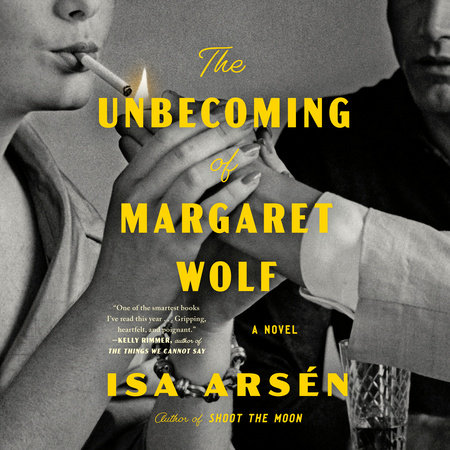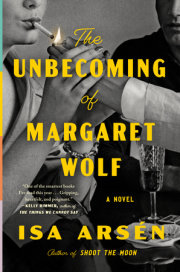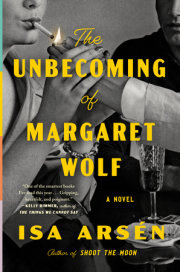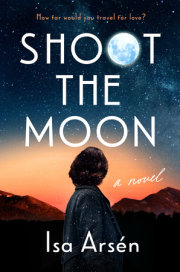1
The Edison
Ezra Pierce was of the same generation as Edie Bishop, eccentric and stubborn and in possession of very specific tastes. Edie preferred ballerinas, and Ezra was fond of fawnish little bastards.
We had been rehearsing Twelfth Night for the last eleven weeks, and Ezra was lining his pockets with good karma and the assurance he knew exactly what his leads were up to the night before opening by treating Wesley and me to dinner. We met at the Edison. Ezra was accompanied tonight by an insufferable student called Benjamin-Full name, my dear. Not Ben. Never Ben. Too gauche. A-haw!
Wesley insisted on covering the bill. "It's the least I could do, maestro," he teased as he reached into his sport coat for his wallet after we finished sipping our coffees and dessert liqueurs. Another braying laugh leapt from Benjamin-Not-Ben-A-haw!-who had been mooning over Wesley since the moment we sat down.
Who could blame him? Wesley was a vision. He carried his trim, elegant figure with the springy surety of an athlete as he moved through the world with an attentive kindness that made it painfully clear he didn't understand how attractive he was. He had thick, wavy hair the color of crow feathers that shone near-blue in stage lights and sunshine alike. Those bright eyes of his, so gray they must have been a devil to capture on film, always seemed to be laughing with you, and when he smiled a single dimple came to life on his left cheek.
Late into the afternoon of our first drink together, Wesley and I gave each other the rundown of our rambling histories. He'd grown up in Maine, taken to sailing, and stayed in California after completing his naval service on the Pacific front. I'd carefully dowsed from there for the story of what brought him to the city and discovered that the one who ruined it all for him-to land one in Ezra's employ, there was always someone who ruined it all-was called Andrew: a magnetic casting director with Hollywood in the palm of his hand. He folded Wesley so smoothly into a vertiginous lifestyle of drug-addled parties that by the time Wesley realized the art-films Andrew secured for him were only ever screened at adult theaters, it was too late to get out with his reputation intact. He'd become nothing but a pretty pet trapped in a four-year cloud of vices.
It was the cold slap of reality that woke him one morning, and Wesley's nasal mimic of the incident over his third gin sling had made me laugh despite the distant pain settled like silt at the back of his gaze-Collect your things and get out, Shoardie. The valet will put whatever you can't carry in the driveway for you. Twenty minutes, or faster if you can swing it; there's a breakfast meeting that I'll absolutely shit to be late for.
And from that morning forward, Wesley's name was mud in all the places Andrew could reach to sully it. No studio would let him so much as darken the doorway of their soundstages, not even the least reputable. With nowhere else to go, he sought the theater again. The part of him that lived for Shakespeare had long been dormant, but it was to Shakespeare and the boards that he returned.
There was much of my own story in his. An instinctive resonance ran between us as I shared mine in turn: Lexington, then Richmond, then here; the private hell in those early places, and the scrappy life of my own making.
We got along like a house on fire, a cracking good match both onstage and off. It really was unfortunate our proclivities weren't more in line.
"Shall we?" Wesley chirped, tucking the cash under the ashtray at the center of the table, and stood to pull my chair out for me.
In the lobby, we fetched our jackets from the coat check. Wesley gently shook mine out and offered it.
"Is that the one you found on sale last fall?" Ezra asked at the end of a fresh cigar as he lit it, nodding at my silk bolero. He was a tall, narrow man with an imperious nose, on which he wore brass pince-nez. His wisping white hair and well-groomed beard were in tame order, which was rare to see-I was used to him brooding through the empty house of the theater during rehearsals or the wings on performance nights, twisting his fingers into his goatee as he stewed on new ways to eviscerate his cast for failing to read his mind.
He was a phenomenal director, a genius eye for staging and a savant-like ear for the text, cursed with the shortest fuse I'd ever seen. Edie attributed it to the exhausting company he chose to keep, the simpering Benjamin-Not-Bens of the world. It makes him feel young, I think, the exasperation.
I turned in place as Wesley put on his hat. "You'd know better than I would," I said to Ezra. "It all blurs in the closet."
"Heard that at a party last week," Wesley said briskly, grinning. He held out a hand to Ezra and ignored another laugh from Benjamin-A-haw! "Thanks for having us, Ez."
"Ez?" Benjamin raised his eyebrows and pursed his lips. He was a soft-edged cellist from the Juilliard School. All the boys who let Ezra stop over in their love lives liked to fancy themselves seasoned but were usually so doe-eyed I just ended up feeling sorry instead of truly disliking them. I truly disliked Benjamin. "You hate nicknames."
Ezra shook Wesley's hand, blew a purple-tinged cloud of smoke from his nostrils, and leaned in to air-kiss both my cheeks goodbye. "He's the only one who makes them sound dignified," Ezra said. "Somehow. Nothing to it, darling, just don't muck up the show."
The tips of Benjamin's ears turned pink. I dug my gloves out of my purse and realized with a quick tightening in my chest that I had scored my arms with roving pink threads in repetitive passes under the table as we'd eaten. Shit. I tugged on each one swiftly before holding out a hand to Benjamin.
"Lovely to meet you, Ben."
Wesley and I walked out together. I took his elbow when he offered it, and he shot me a small, secretive smile. "That was cold," he muttered.
Wesley lived a few blocks away from me in a third-floor walk-up that smelled of singed black tea. His apartment was spartan and tidy, kept with the efficient hand of an ex-officer. He had no roommates, no art on his walls, and an impressive bar cart.
"So is trying to flirt with his date's employee the whole time," I said. Wesley snorted.
"I'm a grown lad." He patted my hand on his arm. We stopped at a crosswalk and waited for the light to change. "But I do appreciate a knight in shining armor."
I smiled at him, his profile cut cleanly against the dark in the mottled wash of neon signs and halogen bulbs glowing. He noticed me watching and grinned. "What?"
"Nothing." I rubbed at his arm through the linen of his sleeve and tugged us across the street when the light went green. "I'm just happy. I'm looking forward to opening."
"I like happy Jack," Wesley said as he fell into step, letting me lead the way. "You're fun when you're happy."
He'd been calling me Jack since he first saw me in my Cesario costume, claiming I wore trousers better than half the men he knew, and had I ever considered doing drag? The name stuck, and every time he said it, a warm sense of belonging came in to fill the small, empty places left wanting inside of me. He was my friend. It made me feel as precious as a creature of Eden given its proper title for the very first time.
The air was calm and perfectly temperate, the deep clutch of spring settled down over the city, and the bustle of the street had begun to turn over from evening to night.
I had once believed Lexington and Richmond were the biggest cities I would ever know, the places most full of life in the entire world. A fond scrap of memory wagged through me when we passed a gentleman with a velveteen coat and matching hat-I recalled my old director at the Richmond Revue, Ansel Jensen, sitting in the empty house between shows and teaching me how to recite iambic pentameter as I swept the aisles.
We stopped in front of my building at the top of the basement stairs. Next door, the pharmacy threw its sterile fluorescent shout onto the sidewalk. Wesley removed his hat.
"I'm for a nightcap," Wesley said. "There's a party on the pier. Care to join?"
I knew exactly what a party on the pier entailed, and ordinarily I would have jumped at the chance. Those parties were riotous islands of secret, shuddered joy, filled with men in dresses and wigs, women in suits more handsome than any heartbreaker in the city, and everyone in between with their arms slung over one another's shoulders and sipping from the same glass.
A party on the pier was where I first saw Edie's social prowess at work, invited into the sacred space of the city's underbelly to meet her there. She had asserted herself as my ambassador on the upper level of a building tucked into the narrow shrug of Charles Lane, where I'd looked down and gone dizzy to see the packed milling-about of every colorful someone below.
Over the wail of the band, Edie had told me of Ezra-and from Ezra came regular work and this rare, fine friendship with Wesley. I could pinpoint every good thing that had happened to me since arriving in Manhattan on that single party. The magic of the city was fickle, but kinder to me than any other place I had called my own.
Wesley was watching me expectantly for an answer. I gave him an apologetic smile. "I can't," I said. "It's too close to opening. I'm antsy."
"Aren't we all?"
"I know. I'm wound up. It's better if I just try to get some sleep."
Wesley looked amused as he leaned in and kissed my cheek. "You sure? I'm going to run myself down."
I reached up and put a hand to his cheek in farewell. "I know, I'd just get in your way. Have fun. Thank you for dinner. Don't stay out too late, remember call is five-thirty tomorrow."
"Should I phone if I'm going to be past curfew?" he teased.
"Only if you end up in the drunk tank."
He turned his face, grinning, and kissed the tips of my fingers. As Wesley stepped back onto the sidewalk, he replaced his hat on his head with a flourish.
"Sir," he announced into the dark, the light from the streetlamp pouring over him like a spotlight, with his voice pitched in the higher register he took on when he parroted my own lines at me as Viola, "shall I to this lady?"
"Ay, that's the theme," I sallied back, digging for my key in my purse. "To her in haste."
The deadbolt always took some wrestling to get open. There were four units along the narrow hall, and a shared bathroom at the end of it, which was only ever clean when I set to it with a scouring brush and the end of my patience.
Home.
I undressed to my slip and stood at my vanity with its uneven legs to rub a pasty dittany along the insides of my arms. The cooling soothe of it was familiar, faraway, and I stared at the fine pink furrows before going to the kitchen.
I wasn't nervous. I wasn't. It was going to be a good show. It was a comedy-everyone loved the comedies. I trusted Wesley, and I trusted myself. We would be great together.
So why now, why the old habit rising like a portent?
I picked up the bottle of Wild Turkey and peered at the contents. After nine years, the bottle was still one-third full. If Twelfth Night opened well, I would toast to myself with a small sip after making my way home in the wee hours after the cast party. I put it back in the cabinet and made myself a slapdash martini. I was out of olives.
My script sat on top of the pile on my table. I flipped to the beginning, sat down in front of the mirror, and began to run my lines aloud.
I put myself back in the space Jensen once taught me to access-Get in their heads, Margot, feel yourself step into their lives. You can become anyone with enough imagination. That's the power of the theater: transformation.
It used to frighten me how deeply I could feel. My mother had insisted it was a blessing, a light from the good Lord to allow me the full glories of His gifts, but for the longest time I could only see it as a curse on my small, useless body. I saw no point to the miserable ability, no reason for my highs or the sweet agonies that came with them, until I found the stage.
To bend an audience to my will was my sole sense of control in this life, the only one I truly owned. I could make people laugh, cry, gasp, fear, desire; in thrall to artifice in their seats, they had to behold me, to see me for all that I was: an unstoppable force. On the boards, I was more than a woman. I was a conduit. The stage was the only place fit to tame these strange passions.
I reached the end of the fifth act. I poured another drink, ran my thumb very gently along the inside of one wrist, and started again from the top.
Wesley and I became inseparable during Twelfth Night. I’d marked a tangible change in myself for the better since we had become friends, and Edie agreed-no matter how much she teased me for such a girlish attachment to a man like Wesley, she was right. I adored being around him. He carried a certain lightness, a sense of unshakable humor I longed to embody. It was a joy to bask in the warmth of his ease.
◆ ◆ ◆
Rumors flew, of course. The rest of the company made bets and gossiped in poorly covered whispers about whether or not Wesley and I were fucking. We hadn't, nothing near it-but we spent lots of time together outside work, and where there was the smoke of actors being friendly offstage burned the fire of sharp-tongued conjecture.
Copyright © 2025 by Isa Arsén. All rights reserved. No part of this excerpt may be reproduced or reprinted without permission in writing from the publisher.









